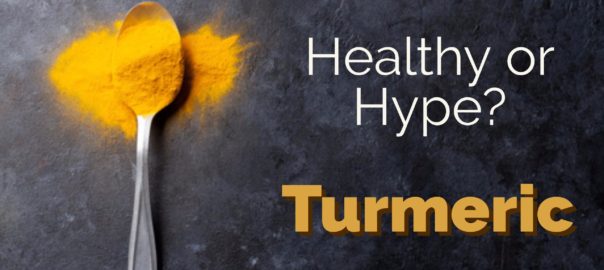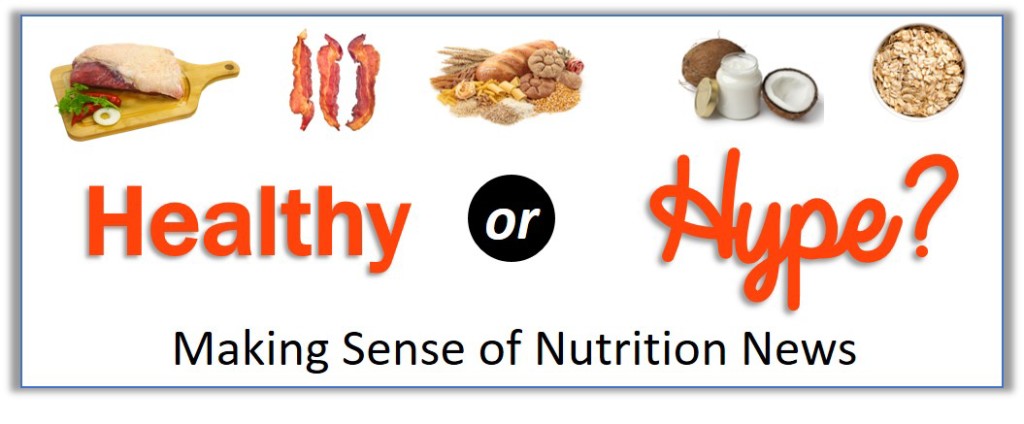Turmeric seems to be everywhere these days. This signature spice that lends curries and mustards their distinct colour is now popping up in unlikely foods and beverages like golden spice lattes, hot chocolate, and even sodas.
And you can count on more foods adopting turmeric’s characteristic yellow-orange hue, as the turmeric food trend is a strong one. A recent Google food trend analysis ranks turmeric as the number 1 rising star, as interest in turmeric has grown significantly in a short period.
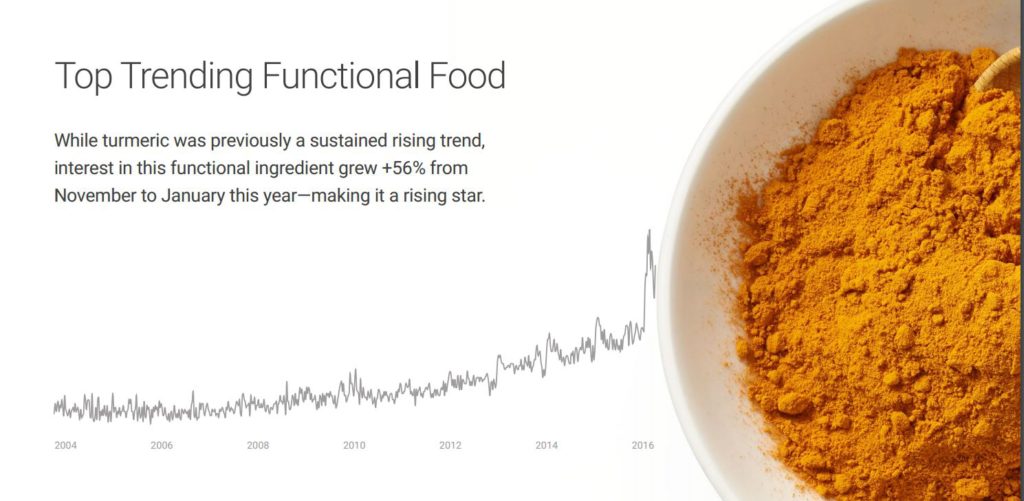
The Internet is a go-to source for information about food and health. But teasing out the evidence-based information from the hype is becoming increasingly more difficult. Is the turmeric trend supported by the body of scientific evidence?
What Is Turmeric?
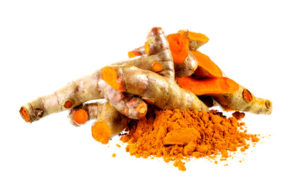
Turmeric comes from the thick root of the turmeric plant: it looks a bit like a small ginger root, and cooks prepare it in a similar way to add a subtle earthy flavour and bright colour to dishes. If you are new to cooking with turmeric, be aware that turmeric can stain hands, clothes, and even cooking utensils bright yellow orange (historically turmeric was a popular dye, and some use it as a dye today). Most people are more familiar with turmeric ground to a golden powder, which is available in the spice isle of most grocery stores.
Health Claims
Recognized as an ancient home remedy in Asia, and commonplace in Ayurvedic and Chinese medicine, many believe that turmeric has medicinal properties. A quick search reveals turmeric as a “cure-all.” The claims for turmeric’s healing properties are wide ranging — from improving cognitive function, cardiovascular function, and weight loss to fighting cancer, Alzheimer’s disease, diabetes, arthritis, headaches, depression, digestive diseases, the common cold, and many more health conditions. No wonder people are sprinkling turmeric on everything. . . (whether it tastes good or not). Does this sound too good to be true?
Evidence
A large body of research has looked into turmeric and health, focusing on curcumin, a polyphenol compound thought to be responsible for turmeric’s potential therapeutic effects. Curcumin makes up only about 3-5% of turmeric.
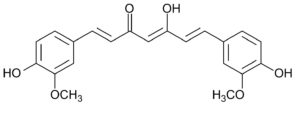
Preclinical studies suggested that curcumin’s anti-inflammatory action might help prevent or treat various chronic diseases. Though promising, it is important to categorize this research as preliminary or hypothesis generating, as much of it is “in vitro” (conducted in test tubes) or in animals. Researchers have studied curcumin in humans, but results have been inconclusive. Also, best to interpret this research with caution as most studies had a small number of participants, short durations, and many did not compare curcumin to a placebo. Though we shouldn’t generalize conclusions from these small-scale studies, their findings can inform larger scale trials.
Another issue with research in humans is that the body doesn’t absorb regular curcumin very well: you can consume a lot of it, but very little reaches the blood or tissues where it can have a clinical effect. Research shows that rodents absorb little (<1%) of the curcumin they consume. However, one line of research is investigating ways to improve absorption: for example, some studies suggest that black pepper boosts the bioavailability of curcumin.
So, turmeric contains <5% of curcumin, and most of this tiny amount isn’t bioavailable . . . why are so many stretching the culinary uses of this standard curry spice to desserts and convincing themselves that turmeric flavoured smoothies “taste good,” or are even “good for you?”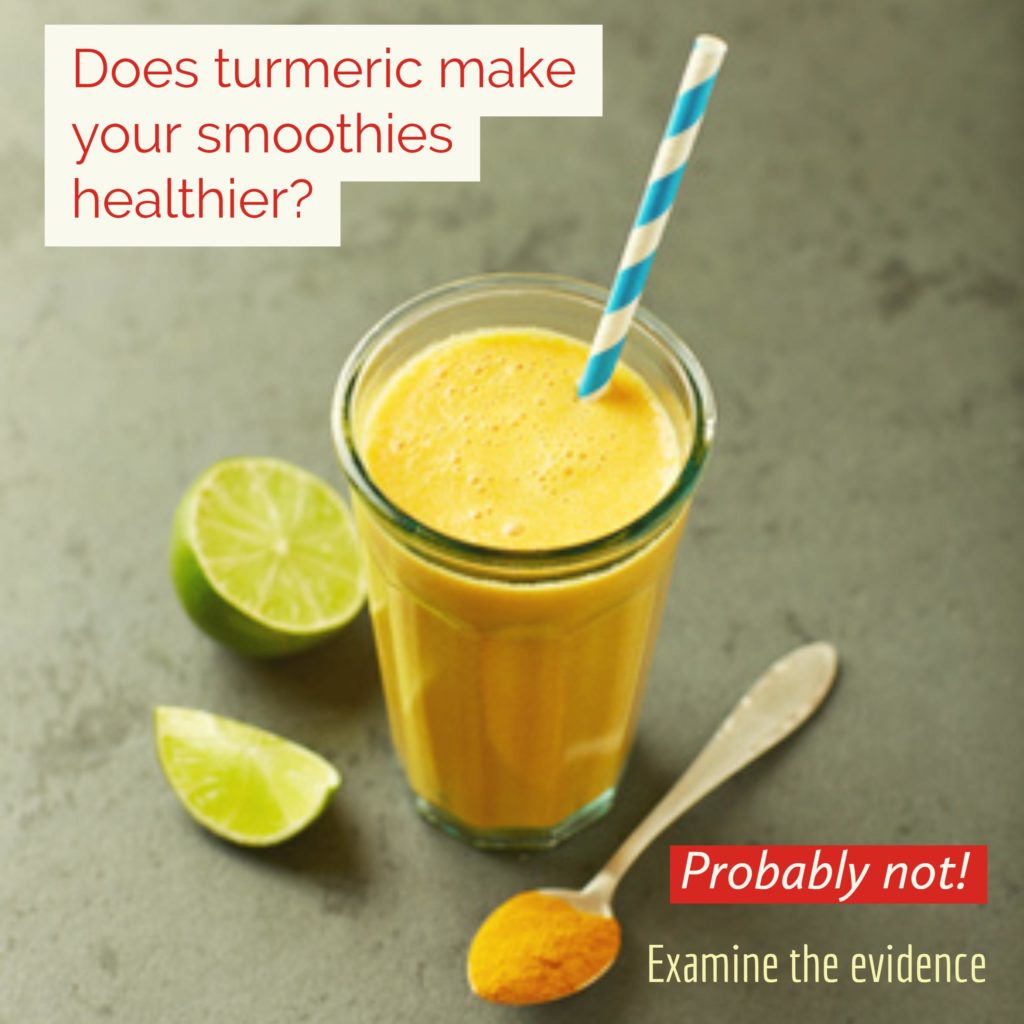
It’s too easy to be persuaded of turmeric’s potential healing powers. Those championing turmeric’s benefits are citing individual studies without proper scientific context. Critically evaluating the available research is a challenge and requires substantial expertise. Luckily, a new comprehensive review published in January 2017 has done just that. Investigators at the University of Minnesota reviewed the evidence for curcumin, which included thousands of studies and over 120 clinical trials. The authors raise important questions about the research and comment that curcumin’s health benefits are “much ado about nothing.”
There is no rigorous human study (double-blinded, placebo controlled clinical trial) showing benefit to turmeric. Another serious problem overlooked by many is that curcumin’s chemical structure is unstable and can produce “false hits” in studies – i.e., showing that it is acting on a disease-causing protein, when it really isn’t.
What about Curcumin Supplements?
Are concentrated supplements of turmeric’s potential beneficial compound (curcumin) a good choice? It seems many North Americans think so, as the market for curcumin is large (US$20 million in 2014) and growing. And marketing by the likes of Dr Oz, Dr Hyman, Dr Mercola, or the Food Babe always persuades many. Curcumin supplements are likely a waste of money, as the recent comprehensive research review shows that they lack sufficient evidence of efficacy.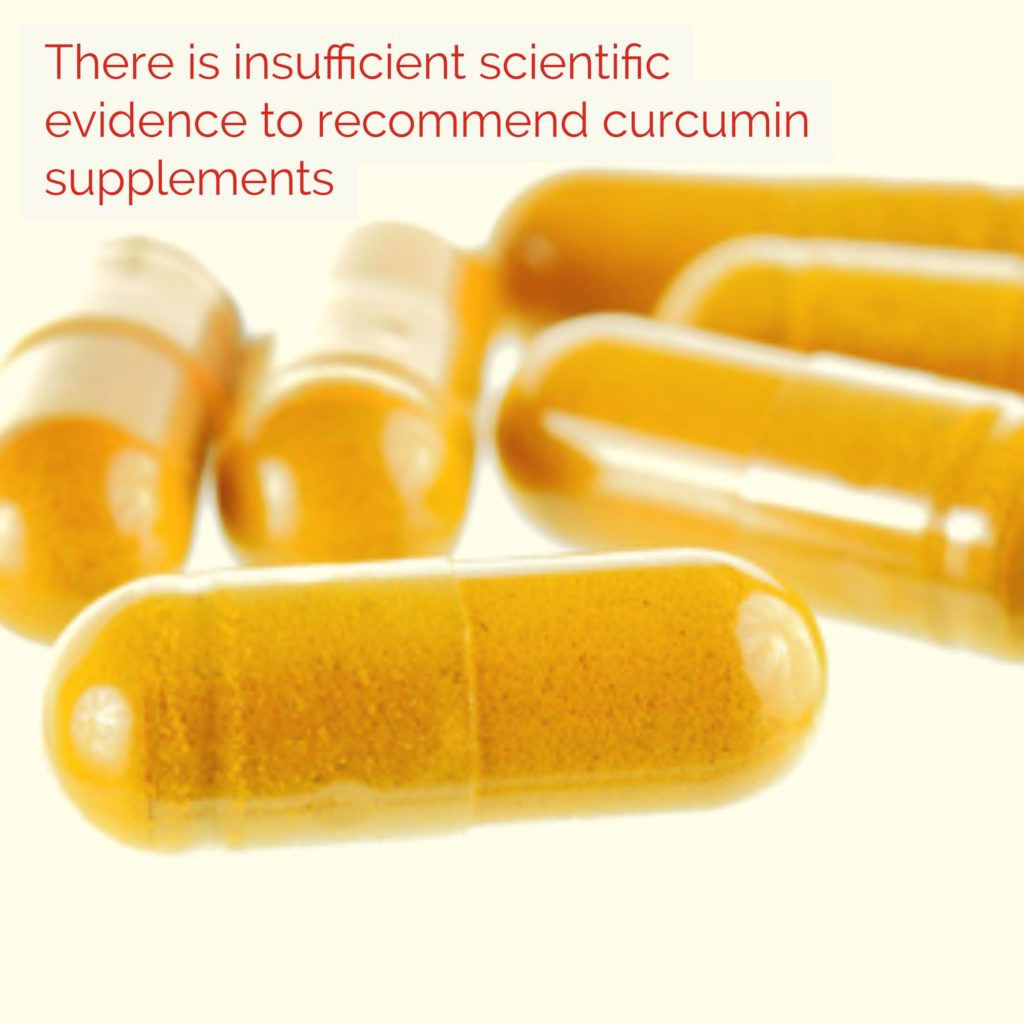
In general, you should be wary of all dietary supplements and their claims. The supplement industry is unregulated (which means questionable dosage, efficacy, and safety), but clever marketing manages to persuade many.
Bottom Line
Although many studies have investigated turmeric/curcumin, and some have shown promise, at this point these findings aren’t good enough evidence to suggest that consuming turmeric improves any health condition. It’s important to consider the preliminary nature of the research and recent review questioning of curcumin’s biological activity. Turmeric is certainly not a cure-all panacea as some have touted. More research may help uncover specific benefits to curcumin or other compounds in turmeric.
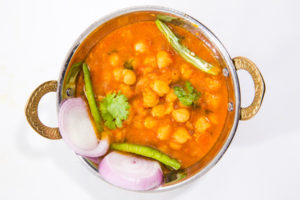
But cooking with spices like turmeric is a great idea. These plant-based seasonings can flavour food deliciously without the need for excess salt or fat. And looking for recipes featuring turmeric may help you cook more and inspire you to prepare healthful dishes. But even if effective, turmeric is a small-player for promoting health and preventing disease: better to focus efforts on eating a good diet, maintaining a healthy weight, and getting enough physical activity, measures that have proven benefits for health and well-being.
Healthy or Hype Series
- Almond Milk
- Agave Syrup
- Buttered/Bulletproof Coffee
- Veggie Chips
- Chocolate Milk for Recovery
- Coconut Oil
- Protein Powder
- Natural Sweeteners
More Healthy or Hype Resources at this link.
Share This: